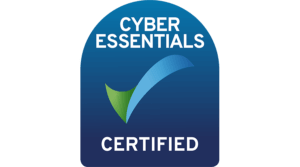Actively undertaking thorough and systematic due diligence into your clients is one of the most effective ways your firm can meet their AML obligations. Your policies and procedures for due diligence should be clearly documented and readily available, and it is essential to take a holistic view of this practice and its benefit as a key AML control rather than seeing it simply as box ticking exercise.✅
Client Due Diligence must be conducted into individuals and companies when you; –
- Are establishing a business relationship
- Are carrying out an occasional transaction exceeding 1000 euros that amounts to a transfer of funds under Article 3.9 of the Funds Transfer Regulation
- Are carrying out an occasional transaction amounting to over 15,000 euros in a single transaction or several linked transactions
- Suspect there may be money laundering or terrorist financing
- Have reason to doubt the legitimacy or adequacy of ID documents previously provided 💰💲
Where your client is being represented by a third party, for example an agent, representative or intermediary, you must ensure that you check their authority to act for the underlying client and verify their identity in order to comply with R28(10). Even in instances where it does not seem as though someone is purporting to act on behalf of another party, you must always be open to the possibility that there could be an underlying client receiving your services and act accordingly. 🔍
In practice, you must ensure that CDD is conducted at the earliest possible opportunity, and it must be completed before you deliver any substantive work to the client, deposit any client funds into your accounts, allow property to be transferred or allow any agreements to be signed. By ensuring you conduct adequate DD checks prior to taking any client funds, you can essentially protect yourself from having to submit a suspicious activity report to the NCA, seek a defence and return funds that may have been proceeds of crime. This in turn will reduce your firms AML burden, as prevention is much more efficient than cure. 🕵️♀️
ID documents that must be obtained to verify a clients identity are;
- One government document which verifies either name and address or name and date of birth; or
- A government document which verifies the client’s full name and another supporting document which verifies their name and either their address or date of birth.
In order to verify a clients identity it is a good idea to employ the use of electronic ID verification software, which will access various databases to verify the documents validity and genuineness, as well as checking for matching addresses, criminal record checks, credit checks and more. 💻
Intuitive Legal can conduct due diligence on your behalf, provide comprehensive policies and procedures, and provide thorough training to your team. Get in touch at info@intuitivelegal.co.uk for more information.


